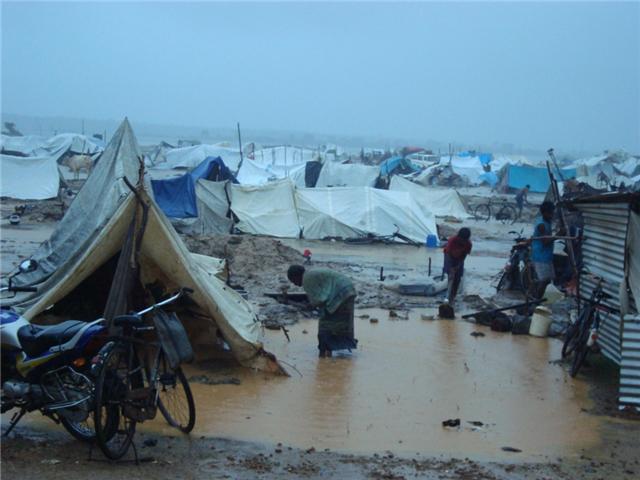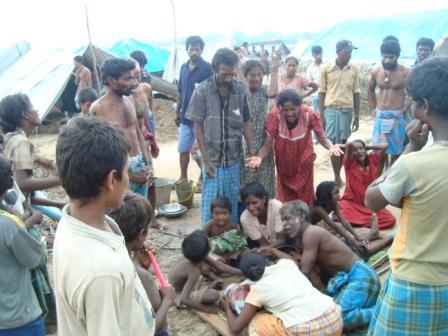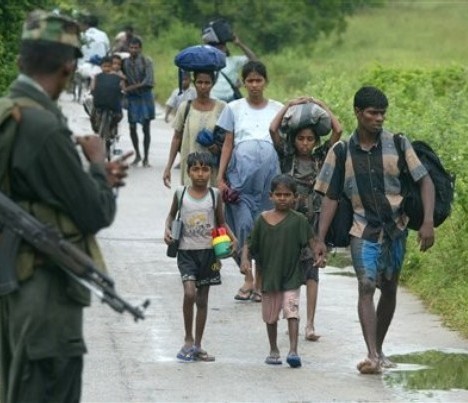Oxfam has managed to get a law on domestic violence enacted in Malawi, according to Duncan Green, its Head of Research.
I like Duncan. He has written some excellent stuff on Latin America and his wife is a former colleague of mine. I agree with him that violence against women is a bad thing and I will take his word for it that it is a serious problem in Malawi. However, I cannot help wondering about his statement that this type of ‘advocacy at national level . . is becoming an increasingly important part of Oxfam’s work.’ What exactly gives Oxfam a mandate to campaign to change the laws of the countries that it is working in and what expertise does it have in the area of criminal justice reform?
Oxfam’s focus in Malawi is on sustainable livelihoods, HIV and AIDS, health, and humanitarian aid and there is no mention of the law on the country page of its website. I did find a report entitled Popularising the Africa Women’s Protocol which details some awareness-raising activities and briefly mentions the new law, but there is no analysis of what its impact has been. Has it led to more prosecutions and, if so, what has happened at the trials? Have more people been imprisoned for committing these crimes and what impact has this had in discouraging further offences? What have been the financial costs of implementing the new law and how effective has it been in tackling the problems that it is supposed to address? Malawi is a poor country and aid organisations need to think through the costs of foisting potentially expensive new legislation on it.
I have also just read an Amnesty International report about violence against women in Brazil. I used to work for Amnesty and I hold the organization in great respect. I live in Brazil and am currently working on an Access to Justice project here. My wife is a Brazilian judge and hears dozens of cases related to domestic violence every week. I am a Brazilian tax payer and we are expecting a new baby shortly, who will be born a Brazilian citizen. In other words, I feel that I have a stake in my adopted country’s future.
We have recently enacted a new law on violence against women, which the Amnesty report praises. Amongst other things, this imposes tougher prison sentences on offenders, provides for preventative pre-trial detention and enables prosecutions, without the consent of the victim, even where the violence has been of a very minor nature.
While there is broad support for the new law, these provisions have caused controversy. Conditions in Brazil’s notoriously overcrowded prisons are appalling and most of them are effectively run by crime gangs. The majority of defendants that come before my wife are poor and unemployed; many are alcoholics or drug addicts, or have mental health problems. Lack of appropriate social services means she can rarely refer them anywhere and the new law is likely to lead to a dramatic increase in the number sent to prison. There is at least a debate to be had about whether this is the best way of tackling the problem.
Yet the Amnesty report does not mention any of these issues – which seems strange for a body set up to help get people out of prison rather than put them in. Instead it talks a lot about the social context of the violence, which affects black and poor Brazilians disproportionately. It also has a chapter about the poor quality of Brazil’s public health care and education systems.
While these points are undoubtedly true, I found myself wondering what Amnesty intended to do about them. Oxfam has obvious expertise here, since it implements education and health projects in the poorest countries of the world. Amnesty has traditionally been strong on criminal justice reform. Yet, rather than stick to what they are good at, both seem to want to converge on one another’s territory – the fuzzily-defined concept of a ‘rights-based approach to development.’
I don’t have a problem with the theoretical underpinnings of this, but what does it actually means in practice? We can all agree that people living in poverty have their human rights violated on a daily basis. The difficulty is not so much identifying the violator, but coming up with an effective remedy.
Some suggest new international treaties, others that putting social and economic rights into constitutions means that they can be tested in law. But there is virtually no empirical evidence that either approach has helped to reduce poverty in developing countries. In fact it is more likely to skew a country’s social spending because it is only the rich who are able to afford to pursue cases through rights-based litigation.
To take just one example, Brazil spends 12 per cent of its Gross Domestic Product on pensions compared to about 3 per cent on health and less than 5 per cent on education. Around 40 per cent of this sum is spent on people aged 40 – 60 and roughly 40 per cent goes to only three million former public employees. The richest fifth of Brazil’s population receive 61 per cent of pension spending; a Scandinavian level of welfare for the already extremely wealthy. Meanwhile people working in the informal economy – roughly 40 per cent of the workforce – get no benefits whatsoever.
On current deomgraphic and economic trends pension spending could bankrupt Brazil in a few decades. President Lula’s attempt to reform the system in his first term of office was met with a vigorous campaign of resistance from the Brazilian judiciary – who are amongst its chief beneficiaries. Brazil entrenched a plethora of rights and privileges in its 1988 constitution, which led to a big jump in state spending on social programmes, but had virtually no impact on reducing poverty. It is no coincidence that it is both one of the most unequal and most litigious countries in the world. These constitutional provisions also overburdened the Brazilian judiciary, which has led to lengthy delays in the conduct of trials. Amnesty reports have often rightly slammed the length of time that people spend in pre-trial detention, prison conditions and fair trial concerns, yet it seems oblivious to the link between the two issues.
Governments throughout the world have to make choices between taxation and public spending, which will always involve prioritisation and trade-offs. Enacting new legislation costs money and money spent on a prison can obviously not be spent on a school or hospital. The danger of the rights-based discourse is that removes subjects of legitimate debate from the political institutions and entrusts them to the judiciary. When applied to the international development industry it dis-empowers national parliaments and weakens democratic accountability. I would be interested in hearing other people’s views on this topic.





